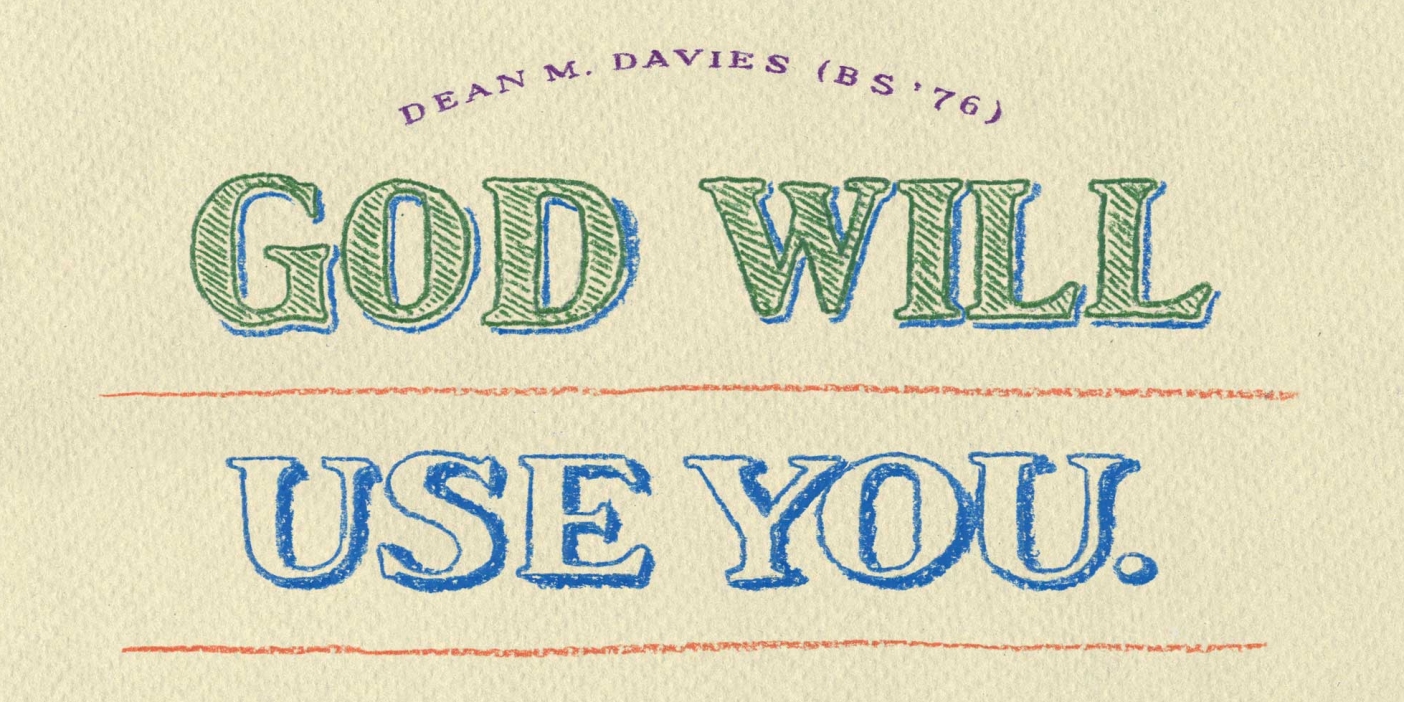How alumni use their BYU education to serve their communities, neighbors, and families.

Go Write Now
My small, not-at-all-small story about an education at BYU is unusual, perhaps, because I did not attend BYU. But I have been there three times as a visiting writer, and after a class on one of those visits, a young woman asked if we could sit and talk for a while. She told me she desperately wanted to write, she’d wanted to write all her life, ever since books and stories first delighted her as a small child. No matter how hard she worked in her writing and literature classes, her work, she felt, was flaccid, lifeless, stiff, mannered, stilted, dull, shallow—she had more words for what she didn’t like about her work than I can remember.
But then the conversation wandered off toward children, and she told me about her toddler daughter—the music of her giggling, her hilarious stagger as she learned to walk, the way she chatted amiably with startled squirrels, her breath that smelled like nutmeg and peaches and whatever it is we are thinking of when we think of heaven. And for once in this life, I had the wit to just listen and then say, “Go, right now, and write down everything you just said to me, write down the holy of that child, write down her giggle and her breath like berries, go right now! Make a list! Don’t think! Write down what you feel, not what you think! Write love without using the word love even once!” We shook hands and she vanished and I have always hoped that for once I did at least something to help educate a student at your admirable university.
—Brian Doyle, Portland, OR
A Crash Course in Relationships
When I got in my first (and only) car accident as a teenager, I thought my dad would kill me. But the first thing he asked after I called was, “Are you okay?” The car could be dealt with later.
The principle my dad demonstrated in showing that I was more important to him than the thousands of dollars of damage to my car became even clearer when I took a BYU family-finance class taught by Craig L. Israelsen (PhD ’90). We were required to read For Love and Money: A Guide to Finances and Relationships for Latter-day Saints, by Bernard E. Poduska (PhD ’83). In the book Poduska lists 10 financial principles. My favorite is no. 3: “Nothing (no thing) is worth risking the relationship.”
I try to remember that principle each day as I decide how I will react to challenges. If a friend fails to pay me back, I can say to myself, “That money is just a thing, and no thing is worth ruining our relationship.” If my children accidentally break a valuable object, I remind myself that it’s just a thing and my relationship with them is more important.
This class helped me look at things from an eternal perspective. In addition to our education, the relationships we have formed here on earth will go with us into the eternities, so we should strive to have good ones—where “things” don’t get in the way.
—Brooke Bastian Bigelow (BS ’05), Spanish Fork, UT











